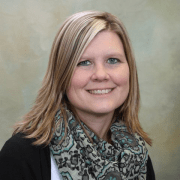Dare to Fail!
MedEdPearls June 2021: Explore ways to acknowledge and embrace our vulnerabilities and find the childlike wonder that comes from failure and leads to innovation.
Have you ever asked yourself what you would attempt to do if you knew you could not fail? Failure is scary. It is typically not celebrated or advertised. However, in this #MedEdPearls, we look at ways to acknowledge and embrace our vulnerabilities and find the childlike wonder that comes from failure and leads to innovation. If we are not attempting great things, amazing things stop happening. By embracing failure, amazing things become possible.
The final keynote speaker for the Higher Learning Commission annual conference in April 2021 was Dr. Sarah Lewis, author of The Rise: Creativity, the Gift of Failure, and the Search for Mastery and founder of the Vision and Justice Project. She spoke of her work which reveals advantages that can be gleaned from failure. In her address, she spoke of failures as gifts. She reminded us how:
- failure feeds our motivation and our creativity
- failure quickly transforms into something else--a learning experience, a trial, a reinvention--which raises the idea that we really do not have failure at all
- great and lasting works (e.g. art, novels, music, inventions) come from multiple trials and failures
- higher education institutions are reluctant to discuss failures, sometimes even suppressing or shaming them
- repeat success can be deadening to the creative process because it doesn’t allow for the sort of childlike wonder that leads to innovation
- we need failure to open our eyes to possibilities for growth
Albert Einstein said “Creativity is intelligence having fun.” In Dr. Lewis’s talk, she presented several examples. One that truly reflected academia was the example regarding two Nobel Prize winners (Andre Geim and Konstantin Novoselov) who launched their best discoveries from Friday night activities that they called Friday Night Experiments, where they took a break from their more structured work to play with crazy ideas that finally formed the basis for their Nobel Prize.
So how can we dare to fail or embrace failure?
- Recognize our blind spots that might prevent us from seeing something in a new way.
- Create opportunities to lower the stakes of failure and encourage creative thinking, such as, Friday Night Experiments, Genius Hours, Passion Projects, 20% Time, and Orange Time.
- Find ways to raise the bar beyond our comfort level rather than stay passive in the norm.
- Create ways to acknowledge or show appreciation for efforts (e.g. Harvard’s Transcript Project) that were not fully successful.
- Think of the positives that have come through failure or trial and error throughout the pandemic especially in the area of rapid changes in educational methods or diversity, equity, and inclusion. For both, we were forced to face our deficiencies. However, in re-imagining them and supporting each other in these risks and failures, we have come out with new experiences and practices that are incredible and completely changing the landscape of medical education forever.
As we close out the 2020-2021 academic year and start planning for next year, what ways can we build opportunities for safe risk-taking and exploration? How have you been able to challenge the impossible in yourself and move to greater heights as a product of failure? Share your thoughts at #MedEdPearls!
About the MedEdPearls Author

Machelle Linsenmeyer
EdD, NAOME
- Assistant Vice President for Institutional Effectiveness and Academic Resources, West Virginia School of Osteopathic Medicine
- Jean Bailey, PhD – Virginia Commonwealth University School of Medicine
- Carrie Bowler, EdD, MS, MLSCM (ASCP) – Mayo Clinic School of Continuous Professional Development
- Kristina Dzara, PhD, MMSc (Educators ’16; Assessment ’16; HCE 2.0 ’17) – Saint Louis University School of Medicine
- Shanu Gupta, MD, SFHM – University of South Florida Morsani College of Medicine and Tampa General Hospital
- Jennifer Hillyer, PhD – Northeast Ohio Medical University
- Larry Hurtubise, PhD, MA (HCE 2.0 '16) – The Ohio State University
- Anna Lama, EdD, MA – West Virginia University School of Medicine
- Machelle Linsenmeyer, EdD, NAOME (Assessment ’07) – West Virginia School of Osteopathic Medicine
- Skye McKennon, PharmD, BCPS, ACSM-GEI – Washington State University Elson S. Floyd College of Medicine
- Rachel Moquin, EdD, MA – Washington University School of Medicine
- Stacey Pylman, PhD – Michigan State University College of Human Medicine
- Leah Sheridan, PhD – Northeast Ohio Medical University
- Lonika Sood, MBBS, MHPE – Washington State University Elson S. Floyd College of Medicine
- Mark Terrell, EdD – Lake Erie College of Osteopathic Medicine
- Stacey Wahl, PhD – Virginia Commonwealth University School of Medicine
Harvard Macy Institute
Harvard Macy Institute
The Harvard Macy Institute educates, connects, and serves health care leaders around the globe by providing advanced faculty development programs, thought leadership, and impactful networking opportunities.
6 Programs

